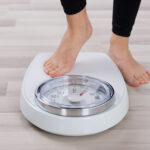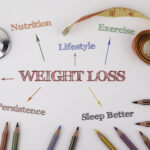
According to the CDC (Centers for Disease Control), 80% of Americans don’t get enough of the recommended amount of exercise. Still, we also know that too much of a good thing isn’t good at all, so can you actually overdo it with your exercise?
In this article, we’ll go over eight of the ways that you know you’ve overdone it when it comes to physical activity. Exercising too much can also be the sign of something more serious, like an eating disorder.
The threshold for how much exercise is enough is different for each person, but there are a few things you should look out for to ensure you or a loved one aren’t overdoing it.
Read on the find out exactly how much exercise is enough, when you know you’ve overdone it.
1. How Much Exercise is Enough: You Exercise Too Much If You Exercise Even When You’re Injured
We’ve all heard stories of the heroic ballerina that broke her foot in the first act and then went on to complete the ballet, only to find herself in surgery afterward. These stories show us how “brave” people are by overcoming injuries, often at the expense of their bodies.
If you exercise when your doctor has specifically told you not to, this can be a sign that you’re going too far.
For some injuries, exercise is required as part of your rehabilitation, but your doctor will only recommend certain exercises. You shouldn’t continue running, for example, on a broken foot.
2. You’ve Lost Your Period
If you’re within childbearing age and you’ve lost your period, this can be a sign that you’re overindulging in exercise. While this isn’t indicative on its own, it can be indicative of nutrition deficiency.
When your body is struggling to survive, it will cut off all unnecessary operations unless it is for basic survival. Your period will be one of the first things to go.
3. You’re Exercising in Secret
If you’re exercising secretly because someone has told you that you might be doing too much, this is a big red flag. Your exercise routine should never be something you feel ashamed of, and you should be proud of what you’re doing.
4. Your Mental Health Begins to Suffer and You Feel More Stressed or Depressed
While there is a positive association between exercise and mental health, there is a negative correlation with overexercising and mental health. When you start exercising too much, you can become prone to anxiety and depression, particularly if you exercise more than 23 times a month.
As with everything in life, everything in moderation is the key to happiness. Scientists are currently working on finding the magic formula to figure out how much exercise is good without being too much for you.
5. You Suffer from Sleep Disturbances
While exercise can help you regulate your sleep by making you more tired at night, too much exercise can cause sleep issues. This can take the form of insomnia or things like restless leg syndrome.
If you’re “on” too much of the time, your body may have trouble relaxing, and you’ll end up spending sleepless nights in bed.
6. You’re Dehydrated
If you exercise too much, particularly outside in the sun, you can become dehydrated. If you’re working on fitness goals and trying to lose weight, you may be limiting your intake of all types of food, including your liquid intake. You should always ensure that you properly hydrate before and after a workout.
Additionally, you should have a bottle of water with you when you do work out, and you should continue to sip on this as you go to keep your body from becoming too taxed.
However, overexercising will cause you to dehydrate no matter how much you drink, so you should be aware of this and continue your exercise in moderation.
7. Your Resting Heart Rate is High
Being in shape is commonly associated with a lower resting heart rate. However, if you exercise too much, your resting heart rate will continue to stay elevated, no matter what you’re doing. This can be very dangerous and is associated with higher blood pressure.
After exercising, you need to make sure you do a proper cool down to help your body ease into a period of rest.
8. You’re Not as Hungry
If you exercise, your appetite should increase because you’re doing physical activity. However, if you overexercise, you may find yourself not being as hungry as you used to be. You may then begin to skip meals and not eat as much as you usually do, which can then cause further problems like the cessation of your period, dehydration and problems like electrolyte imbalances and your body going into starvation mode.
You need to be sure that no matter how much you exercise, you eat enough calories to counterbalance it. You can still lose weight while exercising, but you need to ensure that you do eat enough to compensate for the deficit you create by exercising.
How Much Exercise Should I Get?
According to the Mayo Clinic, adults should get 2 and a half hours of physical exercise per week with moderate intensity, or 1 hour and 15 minutes of vigorous exercise.
This, of course, is a minimum amount. Guidelines say that you should not exercise more than 90 minutes per day, or more than 23 days out of the month. This is obviously different if you’re a professional athlete, dancer or any other job that requires physical activity.
If you exercise as part of your job or you’re training to compete in a high endurance sport, you should have a coach to help you train and map out how much exercise is appropriate. He or she will be able to help you draw out a plan that ensures you’re not overdoing it while still being able to get in the training you need.
The question of how much exercise is enough is variable, depending on you, your age, health, abilities, and goals.
Read our blog here for more about all things weight loss.












